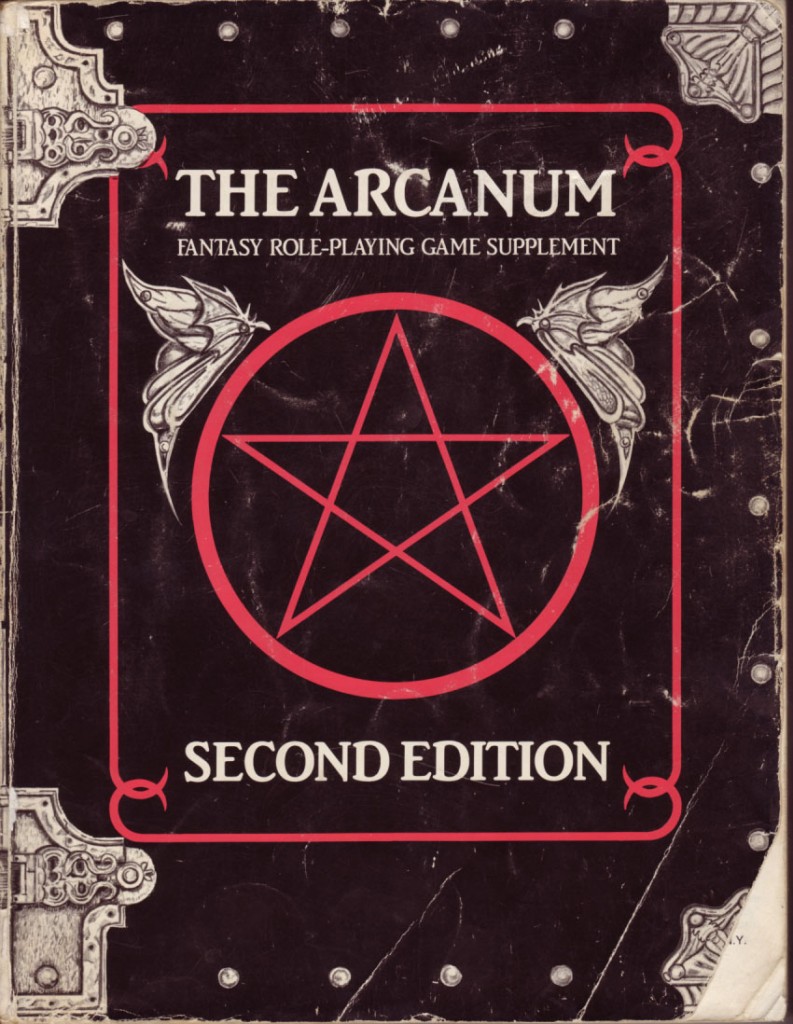Fantasy and Sorcery
 Over on the Strategic Sorcery Group we have been having some discussions about the intersection of Role Playing Games, Fantasy fiction, and Sorcery.
Over on the Strategic Sorcery Group we have been having some discussions about the intersection of Role Playing Games, Fantasy fiction, and Sorcery.
Here is my position in a nutshell:
Magic is real but deals with subtle forces and intelligence’s that, Because of their subtle nature, are is easily polluted with fantasy from the mind of even the best magician. The job of the Strategic Sorcerer is to anchor it more strongly to reality. Anchoring it to fiction does the opposite.
I am not against Role Playing Games. I have played D&D, Mage the Ascension, and my favorite Arcanum.
I am not against comic books. I love the Invisibles. I have read the whole series multiple times. I read through a readers guide to the Invisibles because I love it so much. Yet, I find the idea that it is on any list of how to learn magic, much less a top 5 list, to be inane.
More often than not I see people linking their magic to fantasy or role playing games as an extension of fandom, not of magic. It is an attempt to frame real life in the terms of the game or show or book. To view yourself as a Mage against the Technocracy, or an Invisible against the Archons. It promotes a fantasy life over dealing with real life, and makes magic worse not better. I don’t think many of us would like cops who think “Man, I am just like Jack Bauer on 24! I am gonna act like that…” or doctors who think “I am just like House. What would House do?”
As Sorcerers we are already dealing with powers and forces at the edges of reality. It is our job to ultilize these forces to effect the real world, not drift off into fantasy. Strategic Sorcery is all about real life, not escapism.
RPG‘s do help visualization skills, promote imagination, and can even build empathy and other skills. But you get these benefits from playing the game as a game, just like any other game. Games are great and helpful. One of my favorite reads from last year was Superbetter. But that is something very different
You might even find yourself inspired to try an experiment or investigate something magically through an RPG or a piece of fiction. If so, take that idea and see what the essence of it is and apply in as real a way as possible.
It’s not that there is no overlap. Real magic finds its way into fantasy all the time, and magicians can take some inspiration from fantasy. I joke all the time that I went to Nepal to learn magic from the Tibetans because that’s what Doctor Doom and Doctor Strange did. But they did that in the stories because it was once the place that many people thought of as the ultimate seat of esoteric knowlege. I didn’t pretend I was Doctor Strange, or try to create spells like the Crimson Bands of Cittorak, or contact Agamotto. I moved to Nepal to see what it was actually about.
I will end by reiterating my main point:
Sorcery is subtle and intangible enough. The work of the Sorcerer is to apply it to influencing reality, not drift into escapism.
NOTE: This is not an anti-chaos magic rant. Chaos magic has much more to offer than weaving fiction into magic, and there is a lot of exciting work being done in that field.
